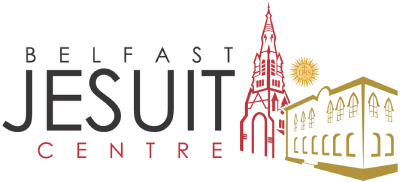A Catholic Vision for Peace: Fr David Neuhaus SJ on Equality in the Holy Land
We are honoured to highlight the recent webinar lecture attended by our team, where Father David Neuhaus SJ presented, Equality, Justice, and Peace: A Catholic Vision for Reconciliation in Israel/Palestine Today.
Hosted by the Ansari Institute for Global Engagement with Religion, University of Notre Dame and co-sponsored by leading institutions including Georgetown’s Berkley Centre; Notre Dame’s Kroc Institute; and the Bethlehem University Foundation; the event carried forward the legacy of Fr Drew Christiansen SJ; a tireless advocate for applying Catholic Social Teaching to peacebuilding in the Holy Land and elsewhere.
Fr Neuhaus was raised in apartheid-era South Africa to a family of German-Jewish origin, and so brings a deeply personal lens to the complexities of the contested Holy Lands. Now an Israeli Jesuit based in Jerusalem; he has served as Patriarchal Vicar for Hebrew-speaking Catholics; coordinated pastoral care for migrants; and currently teaches at Bethlehem University and the Latin Patriarchate Seminary.
His lived experience, shaped by systems of racial and ethnic exclusion, has sharpened his moral clarity. At age 15, arriving in Israel, he recognised parallels between apartheid and the marginalisation of Palestinians. This awareness now grounds his theological and pastoral work.
Equality: The Bedrock of Peace
Fr Neuhaus’s central message is clear: equality for everyone in the Holy Land is the precondition for justice and peace. Everyone in the region, whether Jewish, Muslim or Christian, must be recognised as equal in dignity; created in the image of God. This prerequisite, moves beyond traditional Church concerns (the Christian communities and Holy Places of the Holy Land) and post-Vatican II interreligious dialogue, toward a more urgent and inclusive commitment: the pursuit of full equality for all.
Theology in Action: Concrete Gestures of Hope
In the face of ongoing oppression, occupation and genocide, Fr Neuhaus emphasised the importance of “concrete gestures” to keep hope alive. These gestures are embodied in the enduring presence of Catholic institutions; schools, hospitals and Bethlehem University; which serve as the “incarnation of this vision” of equality, justice and peace, by helping everyone, regardless of religion.
He also outlined specific steps that Catholics worldwide can take to support this vision and build solidarity:
- Pray
- Speak Out: find words for the suffering and to speak truth to power in their daily lives, always using a language of equality, justice and peace and avoiding antisemitic tropes.
- Support Catholic Institutions: Practical support is needed to help the Church in Palestine live this vision through its social welfare structures, schools, and hospitals.
- Come and Visit: Stressing the importance of the “living stones”, the Christian faithful who are direct descendants of the first church and continue to preserve the faith in the Holy Land, Fr Neuhaus invited Catholics worldwide to “come and visit”, to make contact with the living stones, carry back their testimony and enable the “Palestinian voice” to speak directly to them. Though less than 2% of the population, this small community offers a radiant witness.
He reminded listeners that concern for Christian Palestinians must naturally extend to their Muslim and Jewish neighbours, as Christians live integrated in society and advocating for them means advocating for Palestinian society as a whole.
A Call to Imagine and Build
Despite the immense challenges, Fr Neuhaus concluded with a tenacious hope: “We have lived together in this land in the past. Why should we not live together in the future; too?” This is not naïve optimism but a hopeful vision which imagines a better future and begins to live it now.
